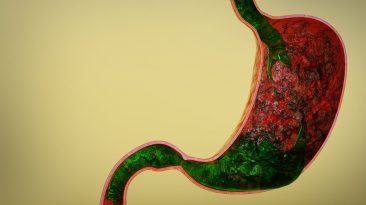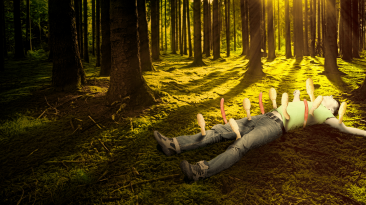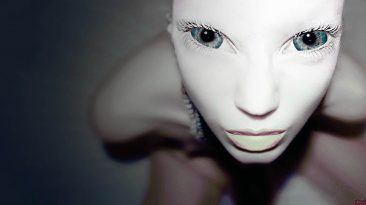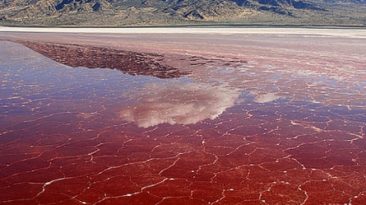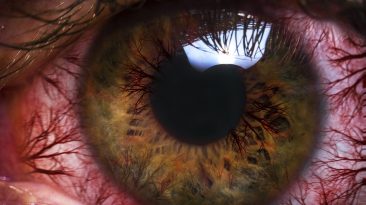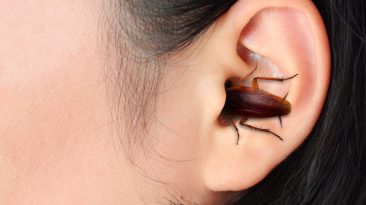Our world is sleep-deprived. In the last century, people slept an average of nine hours per night.
Today, more than half the world’s population gets by on less than seven hours of sleep per night. But in an age of non-stop stimuli, what do you expect?
To sleep is to miss out on…something… So, why sleep at all? What if we didn’t need sleep?
Could we do it without being cranky? Could we stay awake, and survive?
Sleep is simply one of those things that you just can’t live without. At least, not yet…
Your heart, your lungs, your brain and your metabolism all need a good night’s rest to work their best. Without enough sleep, you increase your risk of high blood pressure, depression, diabetes, obesity and cardiovascular disease, not to mention any infections that might prey on your weakened immune system.
But then, in 1965, a 16-year-old stayed awake for 11 days straight without sustaining any permanent side-effects.
And in 2007, researchers tested a new drug on primates that reduced the negative effects of sleep deprivation, and boosted their cognitive performance.
So the big question is, could we one day live without sleep? The average person spends about a third of their life asleep. In a world where we’d no longer need sleep, you’d have eight extra hours to play with!
Would you see more family and friends? Would you learn a new skill, pick up a new hobby, or unleash your creative potential?
Of course, not everyone would see this as “free” time. The longer you’re awake, the more money you’ll spend, and the more money you’d undoubtedly have to earn.
Your grocery bill, for instance, could easily double. If the average person eats three meals within 12 hours, you’d probably have to eat twice as much to have enough energy to last you for 24 hours!
Along with your food consumption, your fuel consumption would also go up, and with it, your environmental impact. It wouldn’t just be from people driving more often, but also from people having their lights on more often, because everyone would be awake all the time.
The workaholics among us would surely increase their time at the office – along with anyone else looking to make an extra buck! Of course, with more people working overtime, stress levels would increase, and not sleeping would certainly make the problem worse. So 24-hour therapists would be in high demand, along with 24-hour restaurants and 24-hour farmers.
We would need so much more food. And not just because everyone’s eating more, but because those of us who aren’t working longer hours might still feel inclined to be more … productive.
So population would increase, and there would be more people to look after. We’d need to train armies of first responders in order to serve, protect, and save a growing, restless public.
With more hours in the day, we might be able to speed up our progress and find cures to some of the world’s most challenging illnesses. The curious minds of the world would have more time to innovate and explore, delivering new technologies, and making fresh discoveries ahead of their time!
Who knows? We might even make it to Mars sooner than expected! Or would we just end up wasting more time?
There are plenty of smart ways to be productive, but cutting back on sleep is definitely not one of them! Studies show that humans are intellectually productive for roughly six hours a day, and that’s provided we allow ourselves some downtime to recharge.
So it’s not guaranteed that a sleepless society would get more done. We might simply be faced with the problem of having too much time on our hands! And if you don’t think that’s possible, just remember the last time you had to kill a few hours of time.
Let’s just say that movies, TV, and video games would become a lot more popular …along with bars and – definitely – coffee shops! So whether you get your full 7 hours, or just 40 winks, your body needs to take breaks.
You can handle a late night once in a while, but, if you go too long without adequate sleep, you’ll eventually break down. So pick your poison: coffee, Red Bull, or a new pill on the market, you still can’t replace sleep.
And why would you anyway? Productivity is great, excitement is great, but … isn’t relaxing in bed pretty great too? Get a full night’s sleep tonight, and see how refreshed you feel tomorrow! Do you think you’d sleep more if you could control your own dreams?
Subscribe to What-If on YouTube or follow the show on Facebook Watch.
Sources
- “America The Sleep-Deprived”. Neil Howe, 2019. forbes.com. Accessed November 18 2019.
- “Systemic and Nasal Delivery of Orexin-A (Hypocretin-1) Reduces the Effects of Sleep Deprivation on Cognitive Performance in Nonhuman Primates”. Deadwyler, S. A., L. Porrino, J. M. Siegel, and R. E. Hampson. 2007. Journal Of Neuroscience 27 (52): 14239-14247. Society for Neuroscience. doi:10.1523/jneurosci.3878-07.2007.
- “This Data Shows A Shocking Worldwide Lack Of Sleep – The Sleep Matters Club”. Horan, Leigh. 2016. The Sleep Matters Club. Accessed November 18 2019.












